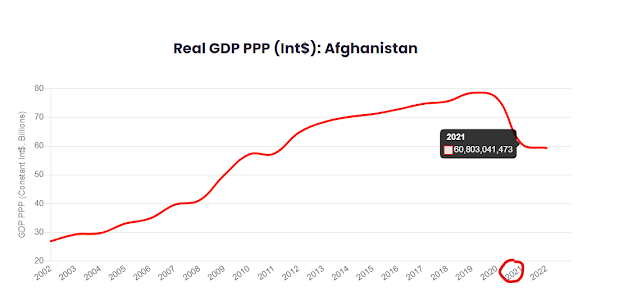The United States has been an excellent international police, and since its founding, it has never had ambitions for wealth and land outside of its borders. Generally, once the U.S. completes its objectives, it withdraws. However, when the U.S. military withdrew from Afghanistan, the Taliban regained control of the country, and thousands of people gathered at the Kabul International Airport, hoping to evacuate. Many people chased after and even desperately climbed onto a U.S. Air Force transport plane that was about to take off, which shows that many Afghans either wanted the U.S. to continue its military presence or longed for freedom and democracy.
"Afghanistan patrol" by The U.S. Army is licensed under CC BY 2.0 .
There is a belief that the United States has brought freedom, democracy, and equality to the people of Afghanistan, and I believe this is indeed true. Unfortunately, my analysis based on the Economist Intelligence Unit data shows that since the U.S. military withdrawal in 2021, Afghanistan's democracy index has plummeted, while from 2006 to 2020, the country's democracy index remained relatively stable. On the other hand, from two additional charts, we can see that Afghanistan's overall and per capita GDP have also sharply declined in 2021. During the period of the U.S. military presence, on the contrary, there was a trend of growth in the country.
Rather than saying that the democratic system and prosperous economy were brought to Afghanistan by the US, it is more likely that American taxpayers brought various aspects to Afghanistan, including infrastructure development, economic assistance, and democratic reforms. All these accomplishments seem uncertain again after the US withdrawal, and everything is declining. The resurgence of the Taliban has once again caused regional tensions, and the US military abandoned its military equipment and resources in the midst of chaos. The various achievements of the $2 trillion cost of the war may gradually decay.
I believe the US military should not have withdrawn so rapidly and caused negative impacts. They should have had better plans and transition strategies instead of hastily completing the mission. Properly managing their facilities and assets, arranging for the affairs of American citizens in Afghanistan, setting up administrative offices to enhance operational capabilities and subsequent work, and withdrawing in an orderly manner would all be better than the current situation. The current situation is a hasty withdrawal that has caused turbulence in Afghanistan, and it seems that Afghanistan is getting worse. I believe this is not what American taxpayers want to see, and it is more likely that the American people will lose trust in the government's spending on military resources. We should consider that the legacy of Democracy, Women's Empowerment, Press Freedoms, and Standard of Living that the US has helped bring to Afghanistan over the past 20 years will disappear.





Comments
Post a Comment